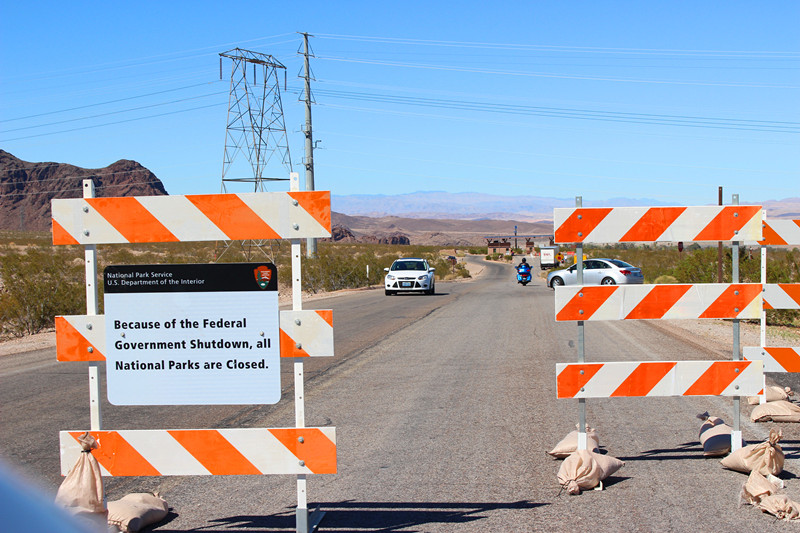By Jeff Kushner
During the many conversations I have had about the “shutdown” over the past few weeks, I am consistently surprised by the lack of understanding among educated people as to how our government works. As an American born during the Baby Boom, a large part of my education was devoted to the study of Civics. Civics basically taught generations of Americans how their government worked and what it meant to be an active member of our society.
Perhaps most important was learning about our process of government: the three branches of government; the division between state and federal responsibilities; and the essential fact that Americans lived in a representative democracy.
This is/was central to our belief that we were/are the greatest nation in the history of mankind, largely due to the idea of “one man, one vote”.
Today, as my generation approaches senior citizen status, the concept of representative democracy appears to be under threat. This is a significant challenge to the preservation of our democracy, and indeed to the greatness of our nation.
There are two primary threats to the concept of representative democracy. The first is the way in which we finance campaigns. America is the only major democracy that allows substantial contributions directly to candidates and indirectly to Political Action Committees. Despite many attempts to apply limits, recent Supreme Court rulings show the trend will be to reduce rather than increase these restrictions. This creates a different form of representative democracy, namely “one dollar, one vote”. We are living in a pay-to-play system dominated by the super-rich, large corporates, and labor unions.
The second threat is declining voter participation. We have witnessed participation levels as low as 55% in national elections, and much lower turnout in off-year or local elections. For example, in the recent special election to fill John Kerry’s Senate seat in Massachusetts, just 25% of eligible voters bothered to vote. This combined with the way we finance campaigns leaves Americans in a situation in which a small group is defining and selecting who governs us.
Perhaps there is a solution that takes these two factors and uses them to improve our democracy. Instead of restricting campaign contributions, why not tax them and use the revenue to create a dedicated fund to educate voters and drive up voter participation rates? This tax would be in the 30-50% range on all money spent by anyone on political speeches, including self-funded candidates. Ideally there would be no exceptions. This would help ensure a level playing field. For example, if we exempted religious groups, their agenda could be over represented.
Before any of you scream about more taxes or the fact that this will violate the right to free speech, just think about the possible impact.
First, a tax may give pause to some donors. There is too much money in our political process coming from a small group of people. If a tax slows the flow, then all the better.
Second, it is likely that the tax revenue spent on voter participation would have the most effect on voters having different views than those of the large, high-dollar donors. That donor class already votes at high rates. Applying political donation taxes to voter participation/education programs will help restore balance to our political process without restricting political speech.
The money raised by taxing political contributions, which could be billions during a Presidential election year, could be used in at least three broad ways:
1. Teaching of Civics in schools. Amazingly this isn’t part of the regular curriculum in most schools. The good news is that there are existing organizations that do this at a low cost, such as Generation Citizen. People need to know how our system works for them to want to be involved.
2. Non-Partisan voter registration and get-out-the-vote efforts. Instead of having campaigns roust their perspective voters, there should be a bipartisan effort to get everyone to vote. Thanks to studies by behavioral scientists, we have much more effective and less expensive ways to get people to vote. This includes helping people plan their voting (where will you vote, when will you vote, etc.) through commitment devices and making individuals voting habits public, which levers individuals’ sense of social responsibility.
3. Providing tax credits to those who vote. Give every voting age American a tax credit. This is the most aggressive idea and likely the most effective, and would need to be carefully structured. Again, we look to the field of behavioral science. Give voters enough tax incentive to take action, but not enough to be too costly, say $50. If people vote, they keep the credit. If they don’t, they lose the credit. We know that people dislike losing money (loss aversion) more than they enjoy gaining the same amount of money. This should provide a strong incentive to the potential electorate.
Our democracy is suffering. This proposal is not a panacea to what ails America However, if we can increase voter participation by even just 10%, it would serve to offset some of the imbalances that have grown significantly in the past 30 years.
I am certain of one thing: if corporations and labor unions don’t like this proposal, then we are on the right track.
